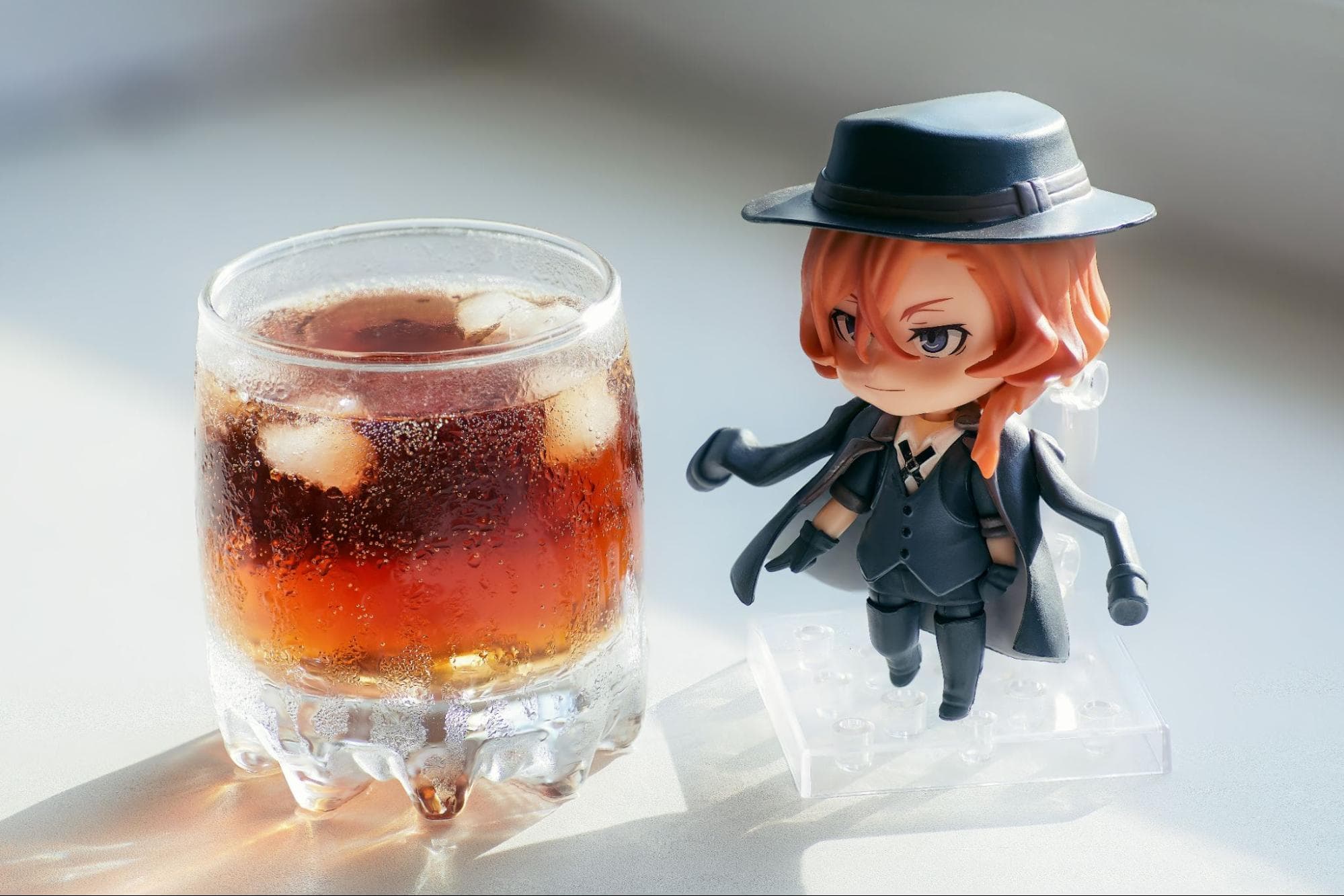
ISFJ Personality: Strengths, Weaknesses, & Tips for Growth
The most common ISFJ strengths and weaknesses include empathy, loyalty, conflict avoidance, and fear of change, and these make up the key traits of the ISFJ personality type. ISFJs, also known as Defenders, earned their nickname thanks to their inherent habit of observing their surroundings and a need to take care of other people.
While they’re empathetic and loyal, they can also take things too personally and become easily overwhelmed.
In this article, we’ll go over all the key ISFJ strengths and weaknesses to help you understand the Defender’s behavior better. Let’s jump right in!
5 ISFJ Personality Type Strengths & Advantages
ISFJs possess a range of strengths that make them valued members of any team or relationship. Their inherent qualities contribute significantly to their success and the well-being of those around them.
So, let’s start exploring the ISFJ strengths and weaknesses with the type’s strong points, including:
#1. Empathy
ISFJs are excellent at noticing other people’s emotions and ensuring these people feel heard and understood. Their auxiliary cognitive function is extraverted feeling (Fe), so they effortlessly perceive how others feel based on their behavior or even body language.
Their sympathy helps them form strong relationships where they’re highly appreciated as friends or partners.
However, aside from their innate ability to identify someone’s emotional distress and the need to help elevate the mood, the Defenders also have great attention to detail and a memory that helps them find common ground with those they care for.
They may use this ability to remind people of happier days and treasured memories, or simply to get them a favorite snack or drink. This way, they find a unique way to express how honest their connection and emotional support are.
#2. Practical Nature
While sympathetic, the Defenders are essentially logical thinkers. They are well-organized people with a great eye for detail.
The ISFJ's determination to understand all the details does not reflect their efficiency in a bad way. In fact, it reinforces it and ensures that everything is performed correctly, to the finest details. This trait, among the other ISFJ strengths and weaknesses, helps them thrive in occupations that demand attention to detail, like finances and engineering, which are only some of the great ISFJ career choices.
However, despite preferring to have a schedule and a more organized life, they have a pragmatic mindset that helps them act fast, enabling them to adapt to diverse, unexpected circumstances on the go.
Interestingly, the Defender personality type often combines practicality with empathy, so they are essentially level-headed individuals who use common sense with emotions in mind, especially when giving advice to others.
Their practicality also affects their decision-making. In short, an ISFJ would most often go for a tried-and-true method rather than something innovative, perceiving it as untested. While this trait makes them come across as somewhat traditional or rigid, it’s one of the main reasons people perceive them as reliable and trustworthy in crises.
#3. Industriousness
One of the greatest ISFJ strengths and weaknesses is their dedication and determination to work hard. We’ll touch on why it can also be a weakness a bit later in the article, but for now, let’s focus on what makes it their strength.
They have a strong sense of responsibility and feel the need to be reliable and persistent. Defenders are very diligent and detailed, not lacking the motivation to exceed expectations and set new standards.
ISFJs can work alone, but their reliability and hardworking attitude also make them very valuable team players who not only take care of their workload but often provide a helping hand to those who are behind.
#4. Loyalty
If you’re friends or partners with an ISFJ, we’re sure you know how loyal they are to those they appreciate.
Their loyalty is one of their key character traits, as all their other strengths build up to this one. The empathy they feel comes from a place of sincere connection, and Defenders will work hard to preserve and strengthen it.
And ISFJs believe the best way to do that is through loyalty. When the going gets tough, the Defenders will be there with you.
As empaths, they understand when someone makes a misstep in communication and don’t give up on them but insist on fixing things, fostering lasting relationships based on mutual respect and trust.
#5. Self-Sufficiency
ISFJs are very independent and self-sufficient. Although they like forming strong, meaningful connections, they feel like they have the ability and power to take care of everything life throws at them.
Thanks to their practical nature and hardworking lifestyle, Defenders have little to no issues learning and mastering all the skills and lessons needed to lead a successful life.
As they grow and develop, their independence grows as well, making ISFJs the ones to offer help to others without having to ask for anything in return.
Defenders are good at making a plan and following through, frequently with above-par results, so they don’t need external motivation or support when they’re addressing a necessity.
4 ISFJ Personality Type Weaknesses & Disadvantages
Like all of the 16 personality types, both male and female ISFJs have strengths and weaknesses, and only assessing them together can help us understand how Defenders function.
And now that we understand their strengths, let’s discuss the main weaknesses of the ISFJ type.
#1. Susceptibility to Burnout
To put it simply, ISFJs are quite susceptible to burnout. Earlier, we mentioned that their hard work can be an ISFJ’s strength and a weakness. When they take on too many projects, they get overwhelmed, making it one of the most visible ISFJ weaknesses at their workplace.
The very fact that they always want to help others can make them overestimate their energy and focus levels, making them feel overwhelmed by the number of stressful situations.
As pressure arises, ISFJs’ behavior changes, and their communication might become surprisingly aggressive for shorter time periods. However, once lashing out, Defenders feel really bad about it and try to fix it, only to enter a loop where they feel even more pressured about doing something new on top of everything else.
Essentially, when they try to handle too many things at once, they experience momentary burnout or even anxiety that damages their routine and confidence.
#2. Taking Things Too Personally
Taking things too personally is another common ISFJ struggle. Empathetic nature works like a double-edged sword for Defenders and their environment. While they manage to easily sync in with someone’s feelings and reactions, they also often internalize criticism and have issues accepting negative feedback.
However, they’re also confident that their way of doing things is the right way (due to their past experiences). So, once they’re met with criticism, it knocks them back and hurts their feelings.
The Defenders might misinterpret constructive criticism or casual comments because they always believe “they’re trying to help." However, ISFJs sometimes fail to understand that unsolicited help can make someone uncomfortable.
Rather than addressing the issue, ISFJs instantly feel like their efforts aren’t appreciated or approved enough, arousing a sense of disrespect that leaves them frustrated. And since they avoid confrontation, plain misunderstandings often lead to major conflicts that could have been avoided altogether.
#3. Avoiding Confrontation
The next ISFJ weakness on our list is conflict avoidance. The Defender’s love for harmony, peace, and stability makes them downplay the conflict at hand, making them circle around it. Without addressing the problem face-on, they can find themselves amid a lot of stacked, unresolved issues.
However, continually avoiding confrontation might lead to them becoming unhealthy, all the while believing they’re making a noble sacrifice to preserve the stability of their relationships.
The Defenders’ approach to conflict is usually either downplaying it or acknowledging its size but waiting for it to blow down. They generally hate tensions and often blame themselves if the tensions arise, feeling like it’s their responsibility to ensure the peace remains intact.
#4. Fearing Change
Aside from defending those near them, Defenders will do the same to preserve a familiar state of affairs and avoid changes. Since their inferior cognitive function is extraverted intuition (Ne), they have major issues with changes and “muddy waters.”
As a personality type that longs for clarity and well-known patterns that keep stability intact, Defenders are often afraid of changes. So, they strive to keep everything as it is, mainly trying to live life according to the saying, “If it works, don’t fix it!”
However, fearing change doesn’t do much, as it simply can’t be avoided, especially in modern, fast-paced cultures and environments. So, if ISFJs ignore this issue for too long, they might experience problems at work, particularly in many contemporary industries (like IT, for example) where adaptability is crucial.
Interestingly, this fear of change also plays a role in the ISFJs’ compatibility with other personality types. For example, Defenders will find it difficult to get along with ENTJs as they’re the opposite and simply enjoy innovations and changes.
4 Tips & Strategies for ISFJ Personal Growth & Development
Now that you’re familiar with the main ISFJ strengths and weaknesses that characterize the Defender type, let’s discuss how to overcome or minimize the weak points for an overall better quality of life.
#1. Step Outside of Your Comfort Zone
The Greek philosopher Heraclitus noted a long time ago: “The only constant is change.”
With this in mind, Defenders need to practice leaving their comfort zone before their comfort zone leaves them. This way, they will engage with new experiences, people, and circumstances while becoming less rigid and more confident in their ability to survive and overcome changes.
In their pursuit of stability, the ISFJs are known for holding on to the familiar and evading change at all costs. However, stepping outside of their comfort zone every now and then would do wonders for proving that, more often than not, stability would be preserved even with a few changes.
#2. Hold Less Grudges
One of the natural consequences of avoiding confrontation is the common habit associated with the ISFJ personality type: they often hold grudges.
However, these grudges represent an obstacle that stops Defenders from developing a more intensive intimacy and closeness with the people around them.
Also, it’s no secret that choosing to forgive someone can have powerful health benefits, including lowering the chances of experiencing depression and anxiety and increasing overall life satisfaction.
The problem with holding grudges is the lack of closure. So, one method of letting go is by writing a letter to the person an ISFJ is angry with. The best thing is that Defenders don’t have to send the letter—the very act of putting pen to paper represents the needed closure and enables them to let go.
#3. Address Conflicts Head-On
On the other hand, there wouldn’t be so many grudges to begin with if ISFJs were more assertive in confronting the other person. Defenders should try to remind themselves that a (un)healthy relationship is a two-way street—neither they nor the other person can take all the blame in a dispute.
With that in mind, ISFJs shouldn’t diminish or hide their true feelings but, instead, respect themselves and the other person by being upfront and letting them know how they feel.
There’s no better way of doing this than by being direct but respectful. Consequently, they can regain control of the situation and remove any doubts about whether the other person is aware of the issue or not.
#4. Setting Your Boundaries
An ISFJ can get into a sticky situation where they feel overwhelmed by the sheer amount of responsibility they take upon themselves. Although the willingness to lend a helping hand feels natural to Defenders, they seem to forget that they, too, have only two hands.
So, if they overestimate their capabilities and constantly look for a new workload to deal with, they reach a point where they feel overwhelmed. As such, ISFJs can no longer be useful and reliable without risking their mental and physical health.
The best way to address this is by taking the time and effort to figure out what their current limit is. Then comes the most difficult part for ISFJs—accepting that it’s okay to say no.
To do so, Defenders should try to achieve a deeper level of introspection and self-reflection that will help them understand and communicate their boundaries.
Implementing the tips outlined above can help you balance out your ISFJ strengths and weaknesses and make better life choices in the long run.
Key Takeaways
- The most notable strengths of the ISFJ personality type include empathy, practicality, industriousness, loyalty, and self-sufficiency.
- Easily getting overwhelmed, taking things too personally, avoiding confrontation, and fearing changes are some of the most impactful ISFJ weaknesses.
- Leaving their comfort zone, letting go of grudges, addressing conflicts directly, and setting clear boundaries are powerful ways of utilizing the ISFJ’s strengths and weaknesses.
ISFJ Strengths & Weaknesses FAQ
#1. What do ISFJs struggle with?
ISFJs often struggle with overwhelming themselves to the point of exhaustion, dealing with big changes, and feeling underappreciated. The Defenders also struggle with self-care and avoiding conflicts rather than addressing them.
#2. What are ISFJ’s strengths in the workplace?
Some of the ISFJ strengths in the workplace include a heightened sense of responsibility, reliability,and dedication to every task at hand. They also exhibit great attention to detail and impeccable organizational skills. Defenders can work equally effectively as individuals and within a team.
#3. What are ISFJs good at?
ISFJs are good at a lot of things, but they excel at supporting their loved ones through thick and thin. Other than their incredible reliability and undisputable loyalty, they’re also good at understanding how others feel and helping them overcome issues.




















